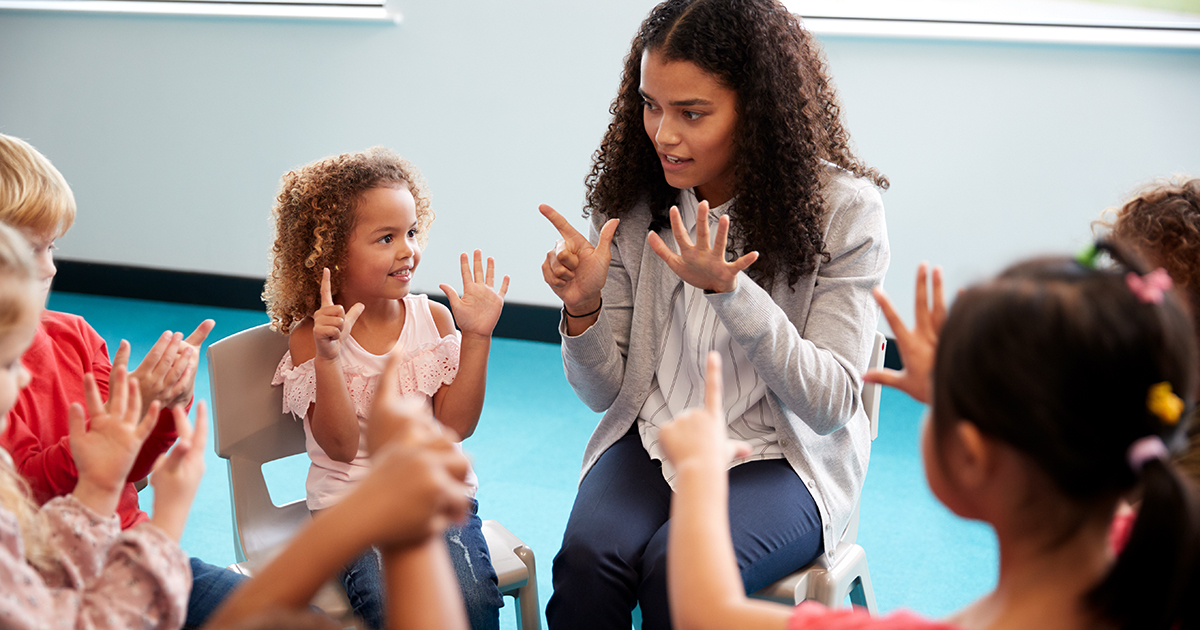Incorporating Children’s Lived Experiences in the Classroom
Findings from Teacher Interviews on Diversity, Equity, and Inclusion in Early Care and Education Curricula and Professional Development

High-quality early care and education help establish a solid foundation for future learning, showing particularly strong positive impacts for children affected by poverty and those who are dual language learners. However, children’s educational experiences vary widely in terms of quality. In communities of color or those with high rates of poverty, there are disproportionately fewer high-quality, early care and education options.
Instructional systems, such as curricula, related materials, and professional development, are a way to improve classroom quality and allow teachers to create meaningful experiences for the young children they teach. However, there is limited evidence on how best to tailor these systems to the lived experiences of teachers and young children, especially those who are Black or Latine, speak languages other than English, or are affected by poverty. The communities to which these teachers and children belong have strengths, assets, and resilience, as well as shared experiences of poverty, racism, and other trauma. When fully recognized in instructional systems, these community characteristics may serve to strengthen the principles and design of early care and education instruction.
To explore how to enhance instructional systems in this way, MDRC, with support from the Bill & Melinda Gates Foundation, conducted the Enhancing Professional Development Supports and Curriculum Design and Implementation in Early Care and Education and Preschool Systems from an Equity-Informed and Culturally Responsive Perspective Project. As part of the project, an MDRC study team interviewed 18 early care and education teachers caring for three- and four-year-olds to learn about their experiences with curricula and professional development as they relate to equity and inclusion in the classroom, with a view to informing their design through the application of a culturally and linguistically responsive lens.
Through these interviews, the team found that the curricula and related professional development that teachers received did not place a strong emphasis on children’s background and lived experiences (that is, race, ethnicity, culture, home language, and family income). Yet half of teachers expressed wanting to know more about the children’s home life to better support them in the classroom. These findings suggest that there is an opportunity to include more activities and supports in curriculum-related materials and professional development that guide teachers on how to incorporate children’s backgrounds and lived experiences into classroom learning.







